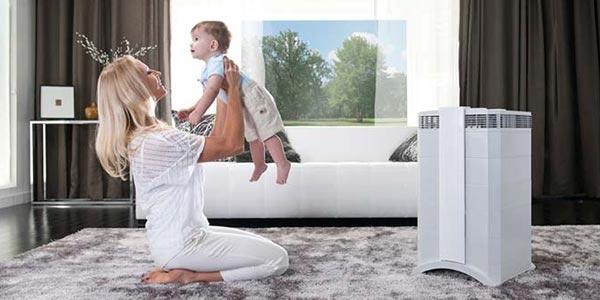Asthma has become one of the leading diseases of modern times. Approximately 7 to 10 percent of the population in modern developed countries has asthma. Despite the improvement of asthma treatment with new and more effective medications, asthmatics will double in numbers every 10 to 12 years. Unfortunately, there is not any new progress in finding a cure for asthma.
However, modern living has opened up an exciting new world and beyond of technological advancement with its faster modes of transportation, immediate access to eons of knowledge, and tons of better gadgets. However, technological advance has some major drawbacks; one of these is the increase of environmental substances which aggravate the human respiratory system. In other words, advancement created more asthma triggers.

Of course, asthma is no modern disease. It once had been known as the “artisan’s disease.” Artisans were craftspeople who worked with metals, marble, stone, sand, oil paints, animal furs and skins, fibers, and woods to provide the middle and upper classes with civilization’s finer things. They produced elegant furniture and clothing, linens, furs, leather, art, glassware, silverware, jewelry, and so on. Artisans handled multiple resources with by-products such as wood and metal shavings, marble and stone dust, fiber dust, turpentine, oil paints, and other fumes. Therefore, many artisans developed obvious problems with breathing. In those days, nothing was known of asthma, its symptoms or its triggers, so hence, the term to explain the affliction.
Later during the 1960s, physicians discovered that asthma is a respiratory disease. More knowledge brought understanding of the lungs and its bronchial tubes with their reaction to certain triggers. Anti-inflammatory medications were developed with other medications, as well. However, the scientists discovered that more than medications were needed to manage the asthma attacks. The triggers also needed to be managed.
Of course, modern days increased modern triggers: from pollution poor air quality due to modern factories, modern transportation, and modern products, such as insulation, insecticides, and plastics. There are triggers from modern personal preferences pungent tobacco products; age-retardant cosmetics and long-lasting perfumes; and fragrant, superior cleaning supplies and ultra-detergents. Other triggers result from innumerable sources of dust, vapors, and the presence of things which have been around before modern times like pets and cockroaches.
For a modern asthmatic who has been told to vacuum the house once a week and to dust the furniture, she thinks the air quality in her apartment has improved, but not much. She can see dust motes floating in the air proving the smaller particles of dust were not removed. She will not put her cat out, either, managing to wash it weekly. She hates the smell of smoking, but the neighbor next door smokes. She replaces the filter in the air conditioner once a month. Yet, her breathing continues to feel stifled. The other day her friend had mentioned owning an asthma air purifier. The friend tells her how well it works with user friendly instructions and modern features. Curious, she reads about it, compares prices, and decides to buy one. It becomes the best investment she has ever made.
She puts the asthma air purifier in the center of her apartment so it can filter and circulate the air continuously throughout the whole apartment. The asthma air purifier removes smoke, dust, animal dander, molds, dust mites, bacteria, viruses, and odors. The asthmatic begins to see less dust in her apartment and she breathes easier, too. She sleeps better at night, feeling very rested. She knows to change or wash off the air purifier’s filter often so the dust will not build up. She wants to keep her investment working well. Happily, she settles on her comfy couch to watch her favorite program on her dustless television with her beloved cat by her side. Modern life isn’t it grand?!!
